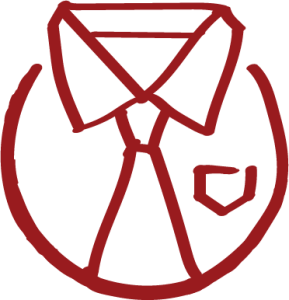8 Second Year-CONNECT: Build Experience

Second Year-CONNECT, “Build Experience”
In your second year at college, as your focus turns from exploring options as you begin to gain clarity to creating connections in the world of work. Your career coach can help you develop a strategy of developing professional connections and experiences that will give you an insider’s scoop on particular careers and industries.
Strategies To Create Career Connections:
1. Informational Interviewing
- Part of this strategy might first include informational interviewing. Your career coach will help you prepare for this from how to identify the right person, how to script an email to request a conversation, questions to ask, what to wear, and how to follow up afterwards.
2. Job Shadowing
- Job shadowing is another wonderful opportunity to learn about a career field by visiting a company and talking with employees in the position. A job shadow can happen over the course of a full day or briefer visit. It is also helpful in building your professional network. Ask your career coach about how to identify and request a job shadow experience. Shippensburg University has created a helpful job shadowing guide for a step-by-step how to. Remember–professional clubs/student organizations will sometimes coordinate opportunities do this too (which is why it is helpful to connect with them)!
3. Internships
- Your career coach can help you identify internship opportunities. “Internship” is a popular buzzword, but an internship is really about an opportunity to build experience in a specific career sector that you’d like to gain additional skills with. It is a wonderful way to get connected and grow your professional network, which can often lead to full time job offers after graduation. Typically this happens between one’s junior and senior year, but it is never too early to start looking & building professional relationships. Early internships (meaning internships that happen in one’s first or second year) can often be good stepping stones of experience towards a more coveted internship in one’s junior year. All experience is good experience!
4. Interview Prep
- If you are selected to interview for an internship opportunity, you will want to be prepared! Make sure you practice for the interview experience in order to set yourself up for greater chances of success. Your career coach can help you practice for an internship interview. This typically involves role playing an interview (sometimes also called, ‘mock interviewing’) using commonly asked questions. Your career coach will give you feedback on what you did well and how you can improve!
-
-
- StandOut is an AI driven virtual interview practice website that is hosted on Kelley Career Center’s webpage. Any IU student can access this platform with a CAS authentication (Duo). Once you log in you can get tips on how to answer specific interview questions as well as and record yourself and receive feedback from the AI bot on what went well and what to improve upon.
-
5. Develop a Portfolio (as needed)
- Depending on your major and career goals, a portfolio might be needed to showcase your work and skillsets, in addition to your resume. Fields in the fine arts, design, writing or media industries often ask for portfolios. Your career coach and professors can guide you how to best showcase a portfolio of your work. The portfolio should give specific examples of your skills. You will learn the difference between transferrable skills and technical skills. Here are examples from the School of Education of portfolios with some best practices and considerations.
Did you know? 70% of successful internships result in a job offer!*
(“20+Compelling Internship Statistics: Data, Pay, and Trends” Zippia.com.Feb.9,2023, www.zippia.com/advice/internship-statistics/)
